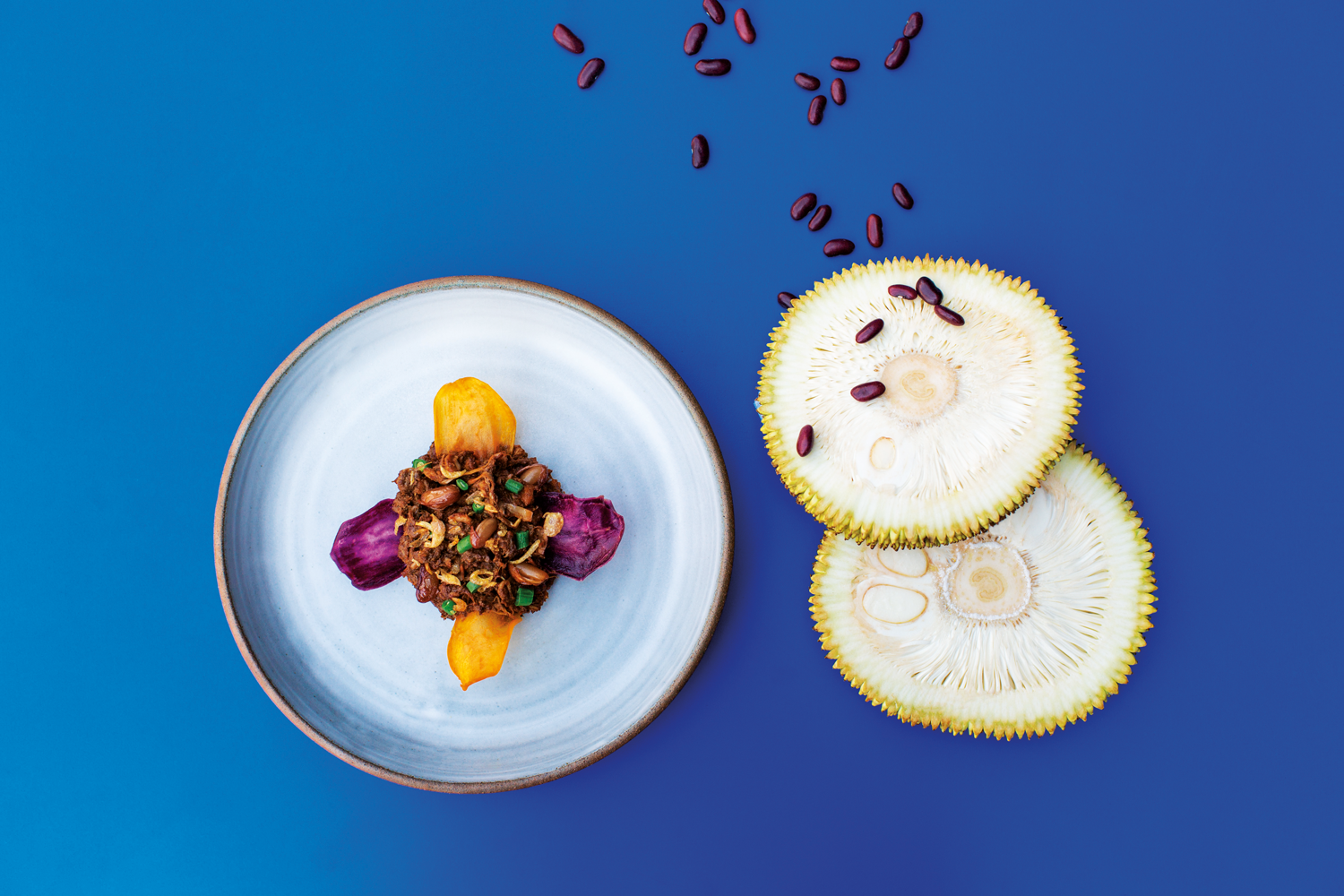We first opened Bodhi Leaf Eatery to cater to our patients’ needs of healthy and wholesome food. You’d be surprised to know that many of them were not in habit of consuming vegetables on a daily basis. Later, it sort of grew to become a plant-based eatery that caters to people who want to eat well, whether they’re vegan or not,” explains Eileen. As a Chinese medicine practitioner with 20 years of experience, she understands the truth behind the ancient wisdom of ‘food as medicine’.
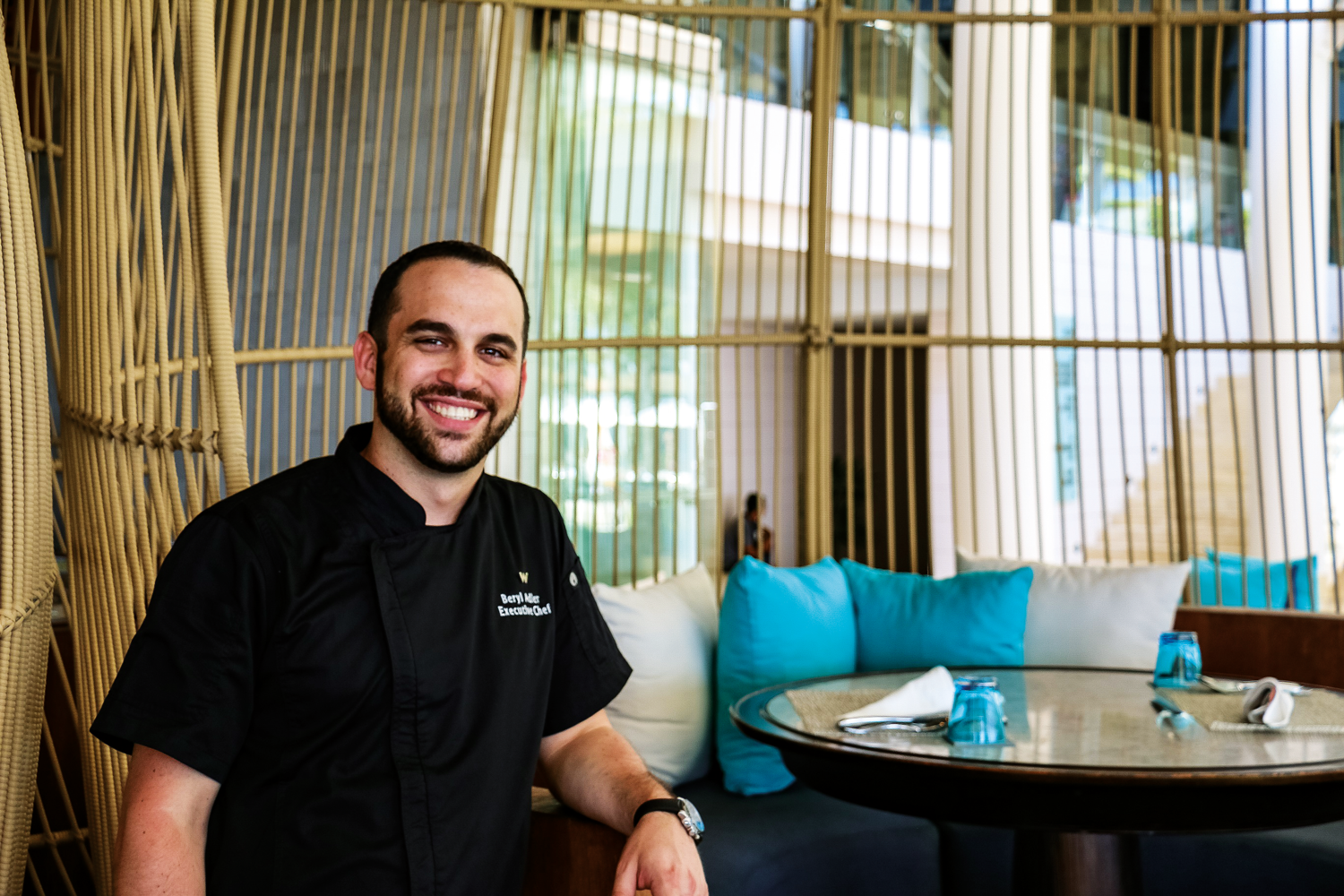
The popularity of Bodhi Leaf Eatery boils down to its accessibility. Open from breakfast to dinner, the 20-seater eatery offers a myriad of worldly flavours. One can order from the salad bar with tasty options such as cold wakame noodle and tabouleh to make a fulfilling bowl but there is also the possibility of having a Gado Gado, a familiar dish for many Indonesians. From Bibimbap to Falafel Wrap, it is easy to forget that all of the dishes contain no meat or dairy products.
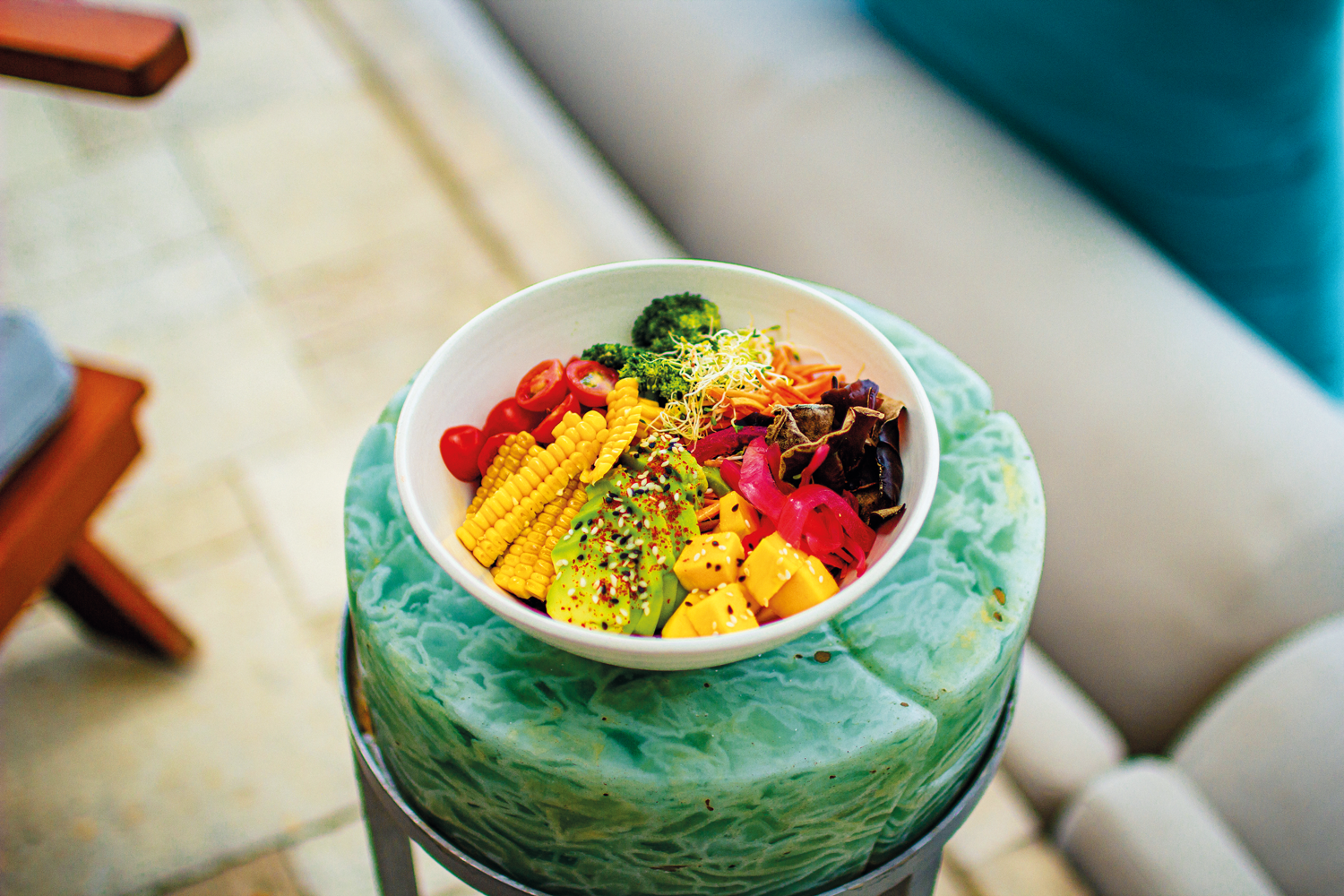
Since being a vegetarian fifteen years ago, Eileen has come up with different experiments and inventions to satisfy her palate. Those recipes made their way to the eatery and to her patients’ hearts. “Eating more plants is good for you. Whether you do it every day or just once a week, it will do wonders for your health and that’s what we do here, to share what we know and to make sure that healthy food remains accessible to everyone,” states Eileen who is thrilled to share that her customers come from all walks of life.
Plant-based food diet
Putting the vegan, vegetarian or omnivore boxes aside, plant-based food has been gaining traction across the world. In response to climate change and irresponsible industrial animal farming, eating more plants is fast becoming a sound choice for more people. While committing to a vegan lifestyle is not for everyone, having a plant-based diet gives flexibility to those who still crave a good cut of steak over the weekends. “Plant-based diets were the diets we used to follow before the industrial age, so they’re very much part of our DNA. A plant-based diet doesn’t mean exclusively plants. It means pre-dominantly plants with some animal sources which can be meats, fish, eggs or poultry. Percentage-wise, this can mean anything from 40-80% made up of plants with the remaining part of the diet made up of proteins and fats,” explains Miles Price, consultant nutritionist of Four Seasons Resort Bali at Jimbaran Bay.
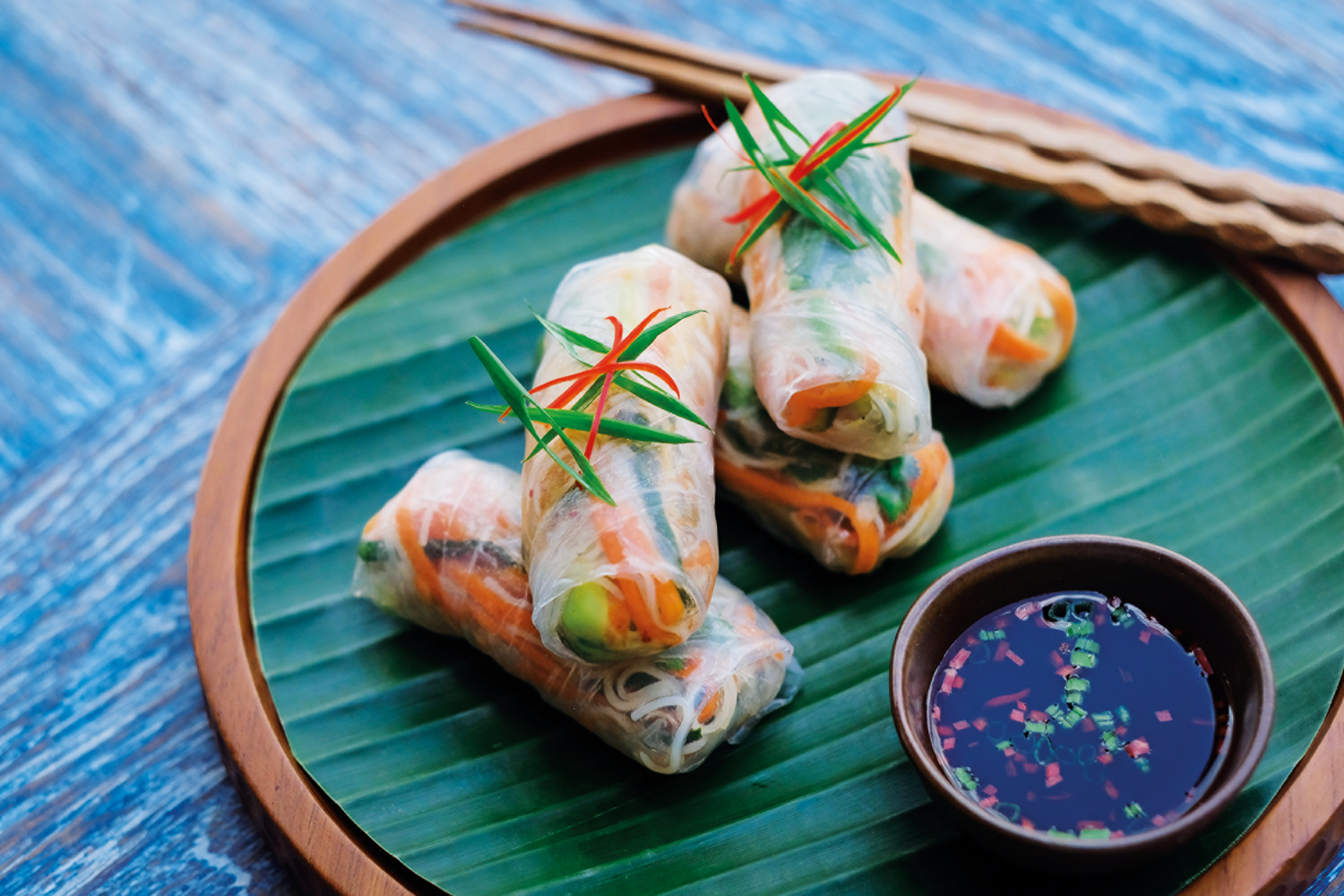
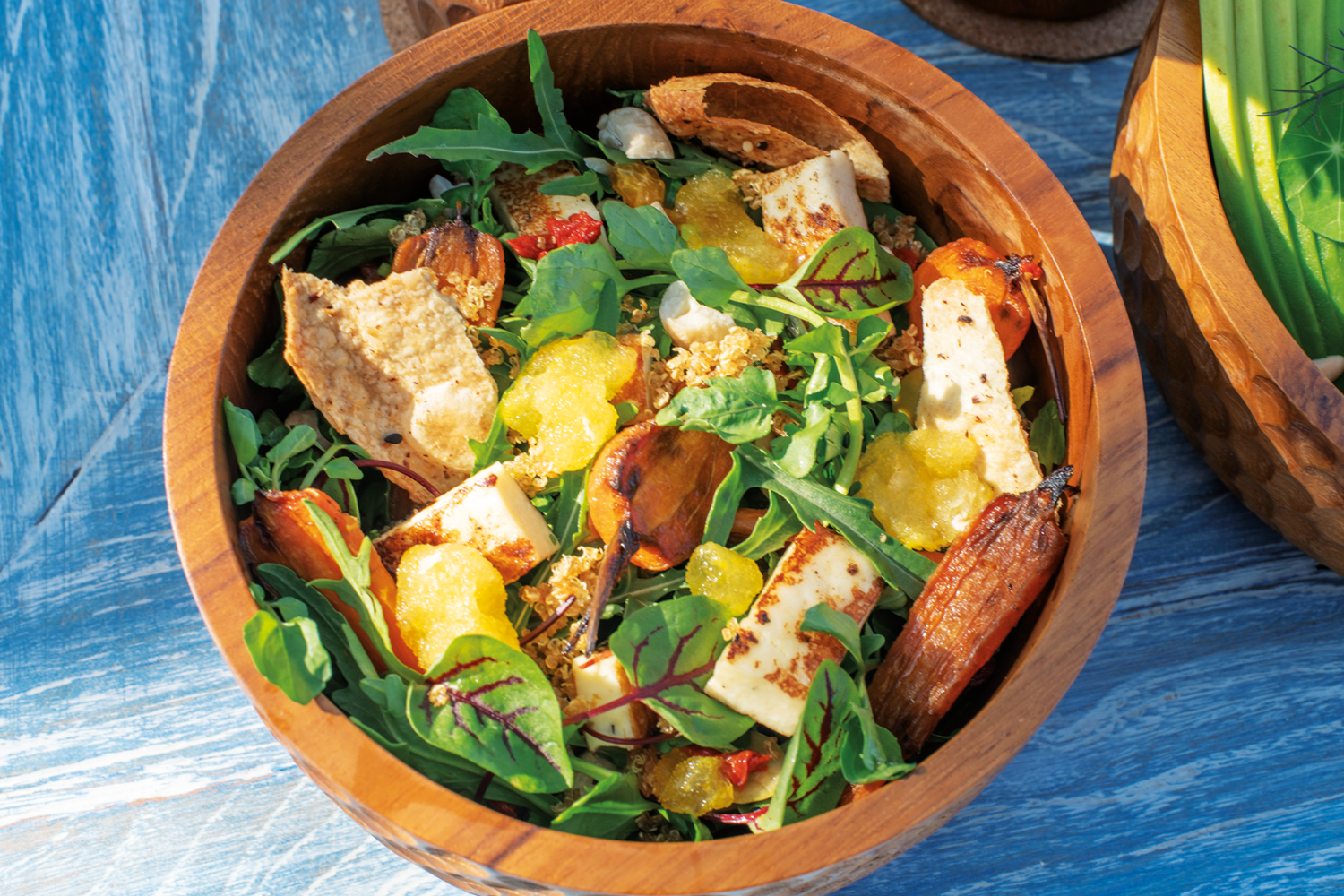
The key to a balanced plant-based diet is substituting all processed carbs such as pasta, breads, pastries and rice for whole, unprocessed vegetables and fruits as the source of carbohydrates. “Eating more vegetables has an anti-inflammatory and metabolic-balancing effect, reducing risk of cardiovascular and cancer-related diseases. Sourcing plants from locally grown sources is imperative, as this not only impacts the nutrient density in the vegetable but also the carbon foot-print in producing the food in question,” adds Price who is also responsible for the new menu at Alu, a poolside café at Four Seasons Resort Bali at Jimbaran Bay. Together with executive chef Phillip Taylor, they create balanced tasty nosh such as Turkish Dips and Pot Stickers.
The same vegetable-forward approach is also found at Starfish Bloo. Open to the public, the seaside Pan-Asian restaurant at W Bali – Seminyak offers a stunning sea view as well as delicious healthy treats. Director of Culinary Beryl Adler recently came up with a smorgasbord of locally sourced plant-based dishes, on top of seafood laden fare. Relish on nutritious and colourful dishes such as Teriyaki Buddha Poke, Grilled Curried Cauliflower “Steak” and Cilantro Lime Quinoa Poke. Adler even aptly takes locally known nutritious produce such as moringa, slyly adding it into the dishes to pump up vitamins intake and to boost the immune system.


New frontier
Up in Ubud, the doyenne of fine dining establishment is no stranger to vegetable-driven tasting menus. Known for expertly marrying French cooking techniques with local flavour and the best seasonal produce, Mozaic Restaurant Gastronomique offers four-, six- and eight-course Vegetarian Tasting Menus for lunch and dinner. Chef owner Chris Salans’ deftness in coaxing the best flavour of an ingredient ensures that even omnivores would be satisfied. “When you work with the season and use the freshest ingredients possible, it is pretty much guaranteed that you will have some tasty plant-based dishes. Vegetables are very versatile and all sorts of cooking techniques can be used to draw out its flavour,” says Salans. From Watermelon Carpaccio Marinated in Rendang Spices with Fresh Cumin Leaf and Parmesan Emulsion to Fresh Pumpkin and Balinese Basa Gede Ravioli with Tempe Crumble and Laksa Leaf, the tasting menus manage to prove that creativity is the only limit when it comes to plant-based food.
Tanaman, Desa Potato Head’s latest dining venue, approaches plant-based food uniquely. Proving the old adage that to go forward we have to look back, the futuristic bunker-like restaurant offers a refined plant-based interpretation of comfort Indonesian food.
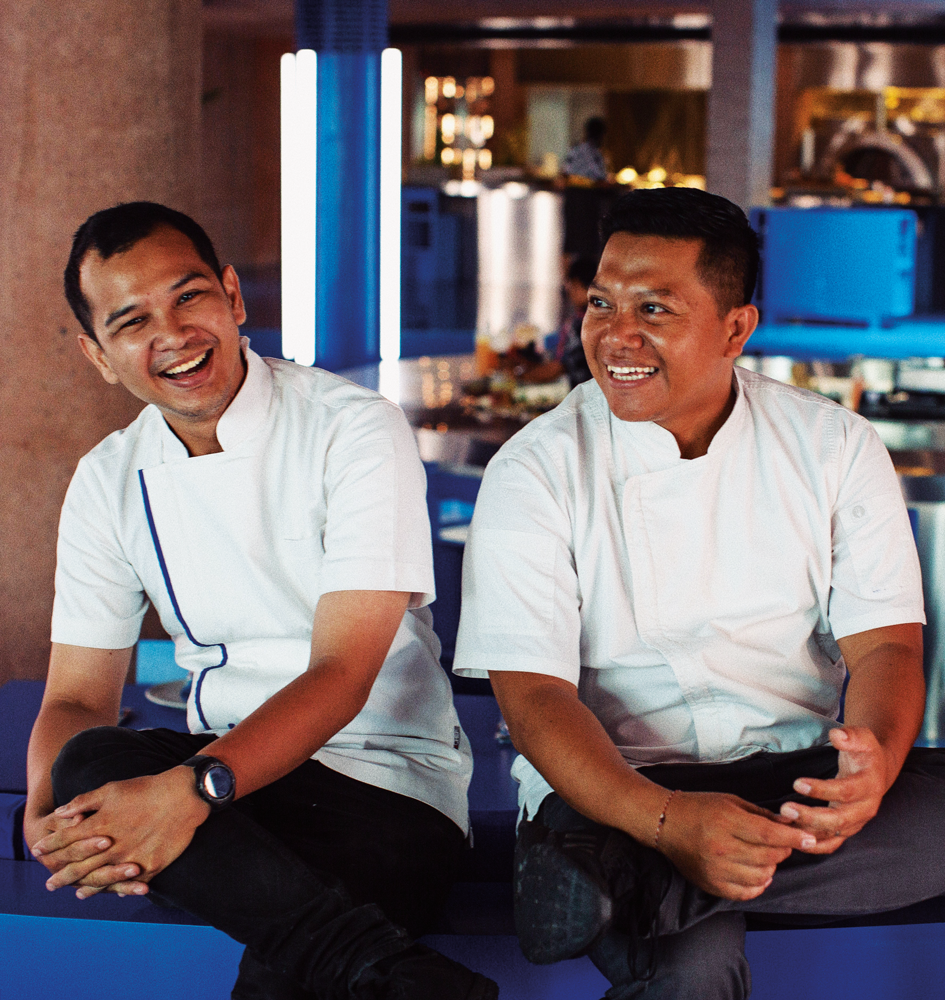
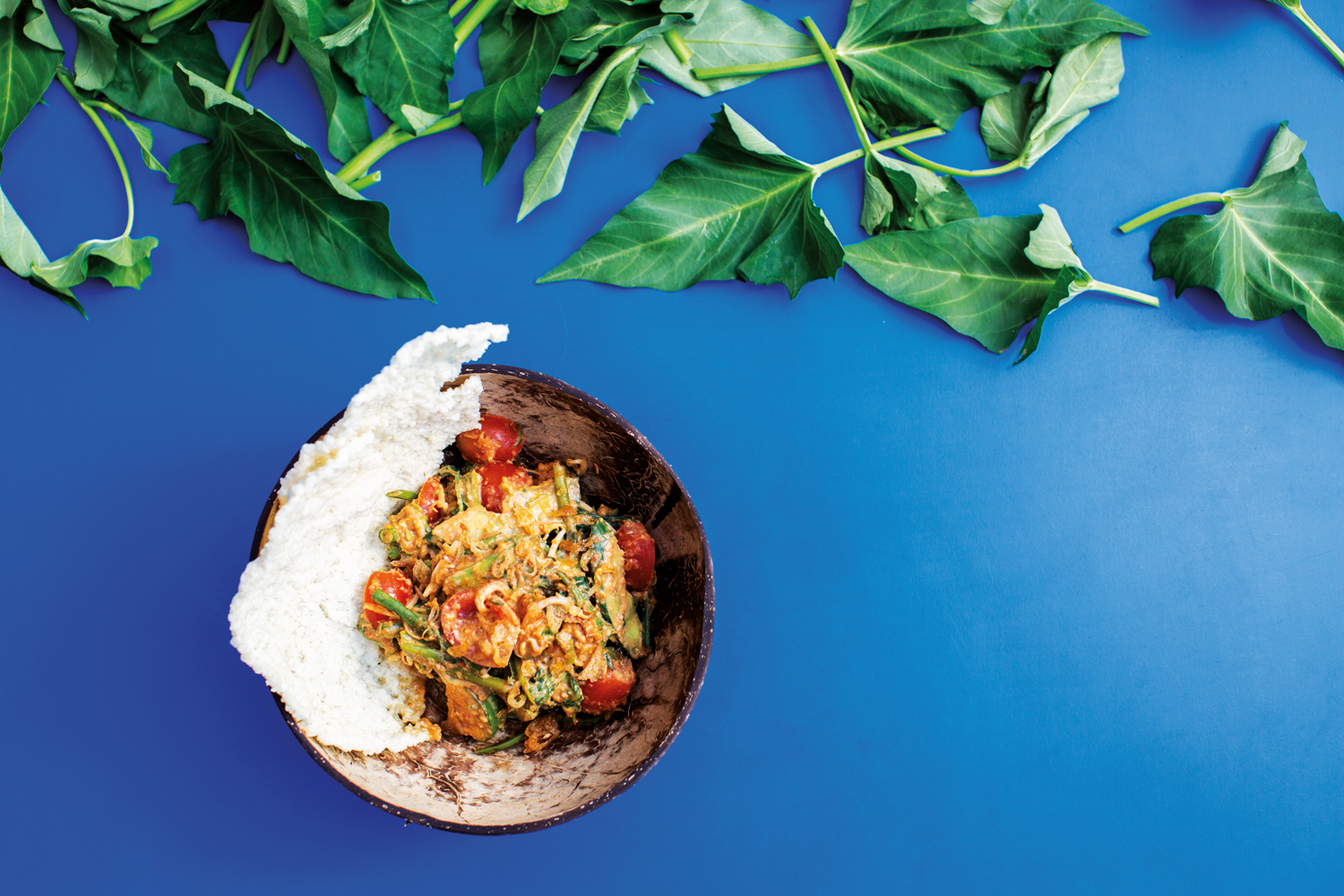

Executive chef Wayan Kresna Yasa and research chef, Indra Adi Saputra recreates classic favourites dishes in a tasting menu comprising snacks and starters, soup and sate, mains, sambals and condiments, as well as dessert.
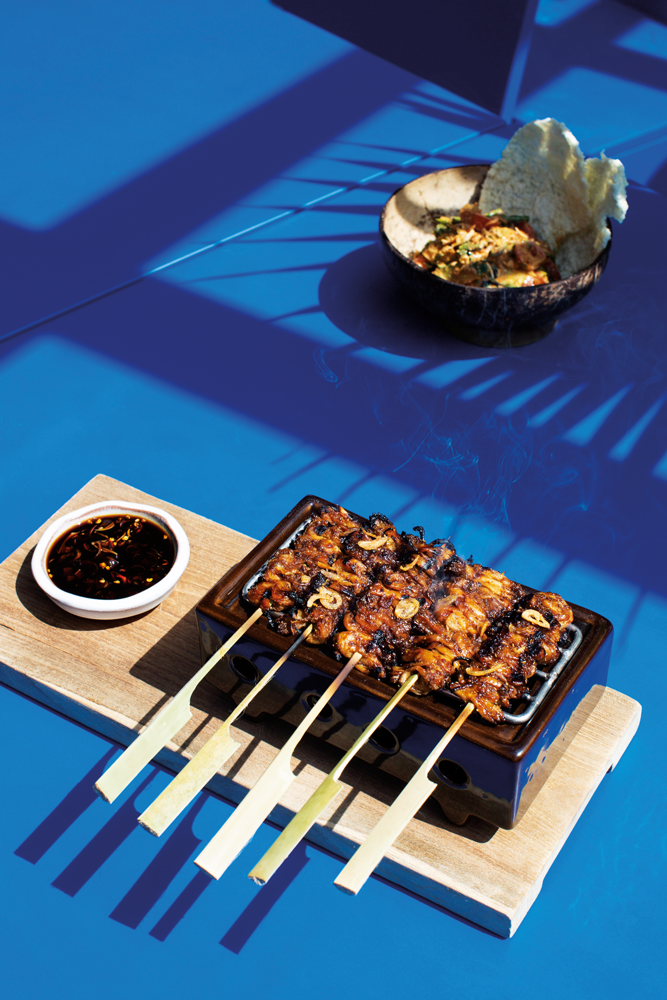
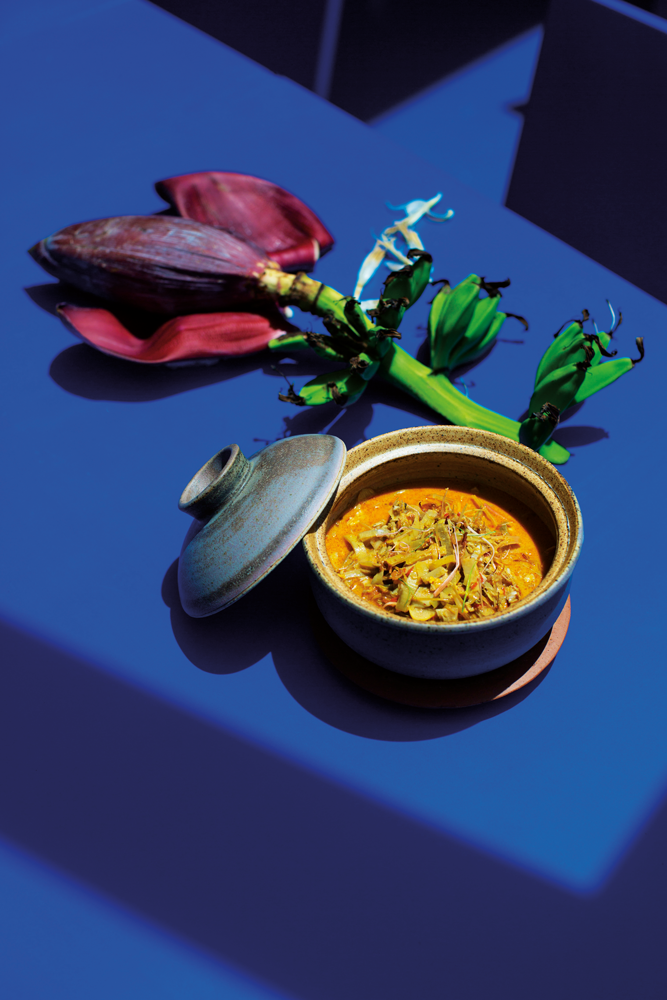
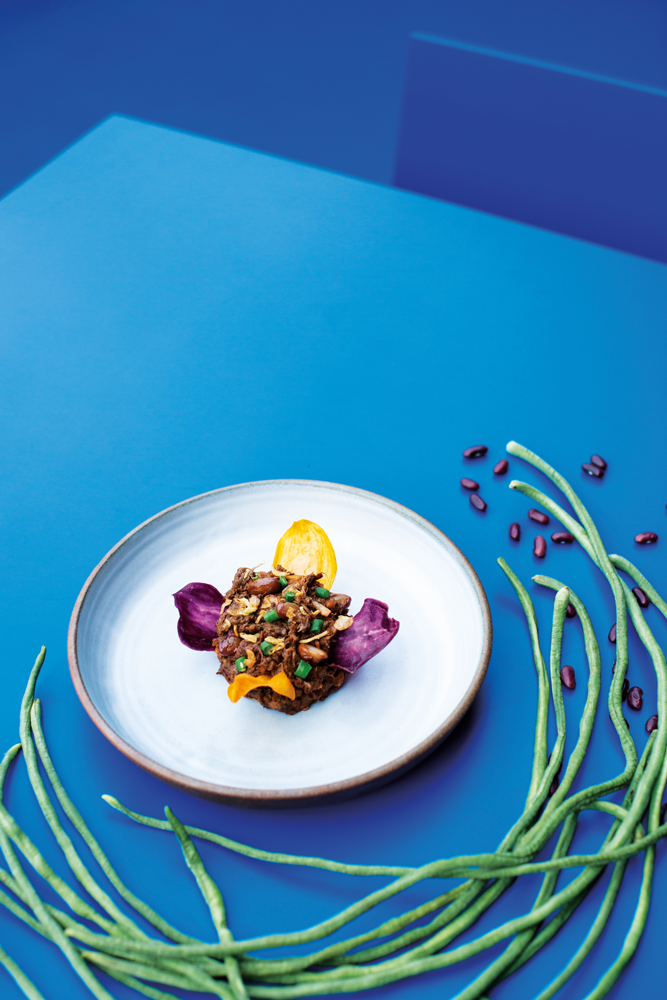
Think of Meranggi sauce-marinated and grilled Sate Jamur. Using oyster mushrooms to replace beef, it is a delightful discovery of how a humble mushroom can be transformed when it is expertly seasoned and cooked. One serving of Rendang Nangka may not be enough. Indonesia’s most popular beef dish is being transformed by the clever use of young jackfruit. Best eaten with a generous helping of aromatic Nasi Hijau made of suji and pandan leaves, it does make plant-based diet an effortless endeavour. “Potato Head takes sustainability and locality seriously. The way we see it, the food of the future is plant,” states Kresna Yasa.
